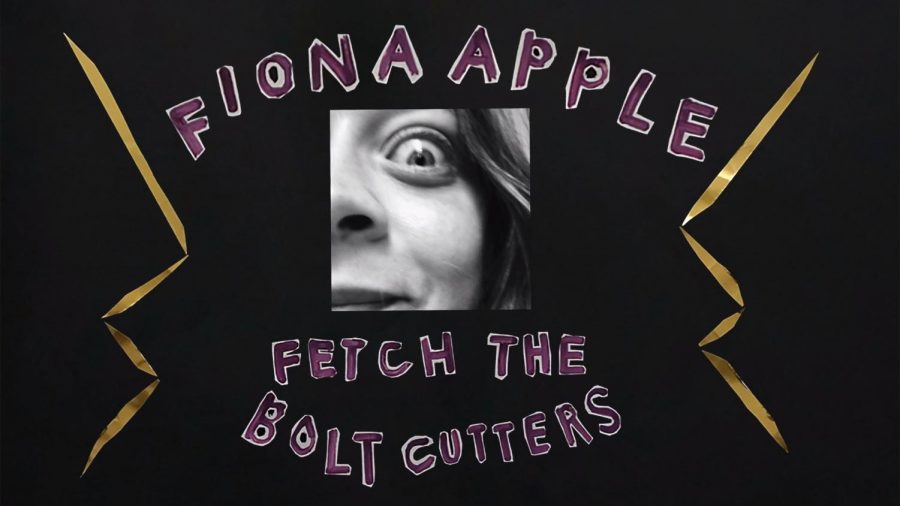“Fetch The Bolt Cutters”: Album Review
Fiona Apple’s fifth album gives a more intimate look into the artist’s mind, with songs more focused on personal life experiences and revelations
In “Fetch The Bolt Cutters,” released in the middle of the coronavirus pandemic, and eight years after her last album, Fiona Apple shows the universality of pain, grief, acceptance, and closure. Written while the artist was in isolation herself before the recent events, Apple welcomes loneliness with open arms in search of healing.
In the new record, Apple still follows her usual themes of the hardships of love and life, but this time takes an anecdotal approach, reflecting back on her own trials and tribulations and how they have shaped, and will continue to shape her. The sound of this album is raw, seldom touched by heavy editing, and in its purest form having been recorded inside her Venice home, which also happened to be used as an instrument. Throughout the recording process, Apple used the walls and floors to create the rhythm and beats heard in the album.
The album began receiving high praise almost instantly after its release. The album has received the first perfect score in a decade from Pitchfork.com, Metascore of 100 from Metacritic.com, and four and a half stars from Rolling Stone, all praising Apple for taking such major strides in her creative process. There were some fair criticisms to the album as well, stating that Apple’s sound has not changed as much since her last record. Some referenced the simplicity of the lyrics which listeners argued was what made the songs easier to understand within a wider audience.
Listeners throughout all platforms also argued that the lyrics are geared more towards the experience of being a woman, which can be seen in songs like “Ladies,” which is like an open letter to an ex-boyfriend’s current girlfriend. “There’s a dress in the closet/Don’t get rid of it/ You look good in it/I didn’t fit in it/It was never mine/It belonged to the ex-wife of another ex of mine.”
She explained in an interview with Vulture.com, “This album is a lot of not letting men pit us against each other or keep us separate from each other so they can control the message,” recalling the experience of hearing her grandmother speak of her grandfather’s infidelity and his mistress. She would notice how her grandmother would not place any accountability on her grandfather, only viewing the woman who became and stayed his wife as his mistress.
The album takes a couple of comical turns, still heavy with meaning, with songs like the aforementioned “Ladies,” and “Under the Table,” where Apple recalls a dinner in which she created tension by calling a guest out on their offensive behavior and refusing to be quiet despite her partner’s pleas.
A common theme heard in this album is the chants and the slapdash use of drums, especially in “Relay,” where she describes things that create and continuously spread evil, continuously chanting, “Evil is a relay sport/Where the one who’s burned/Turns to pass the torch.” Those lines originally found their way to Apple when she was only 15. Years later, during the Brett Kavanaugh hearings, those lyrics found a perfect home. She also talks about people who constantly put on a show for people, rather than being authentic in a very aggressive and vulgar tone, really showing her anger and lack of patience with people not being held responsible for their actions.
From start to finish, the lack of commercial editing and heavy edits demonstrate the authentic and powerful sound of Fiona Apple. Her lyrics, beautifully vague, yet oddly specific, speak to experiences that anyone can relate with to some degree. Written and sung in insolation, this record will be played as many practice social distancing during this uncertain time, bringing them closer to the artist herself.
Alin Pasokhian can be reached at [email protected].

